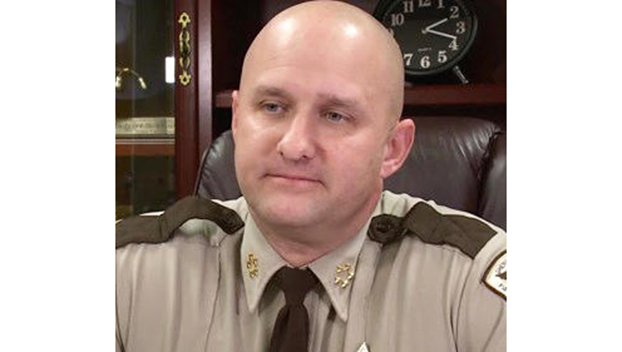Court: Mississippi sheriff acted lawfully when he decided not to hire former deputy who claims his first amendment rights were violated
Published 7:00 am Thursday, December 29, 2022
A federal court determined that Panola County Sheriff Shane Phelps did not unlawfully exclude a former Panola County deputy from a list of potential hires when he took office.
Harold Lewis, who served as a deputy in Panola County from 2014 to 2019, had appealed the Fifth Circuit’s District Court decision to reject his First Amendment retaliation claim.
Lewis alleged he was not hired by Phelps as a deputy sheriff because he made public statements supporting Dennis Darby, a political opponent of Phelps, and sheriff when Lewis was hired.
The Fifth Circuit Court of Appeals said Lewis met some of the requirements to bring the suit against Phelps when he was not rehired, but also noted that the newly-elected sheriff invited more than 100 employees to apply and did rehire about 30.
Lewis, in that same election, unsuccessfully challenged District 1 Supervisor James Birge for his seat.
Phelps argued that Lewis was not hired because of his “multiple shortcomings as an officer of the law.”
Specifically, attorneys for Phelps and the county, referenced a recorded 911 call from June 2019, in which they alleged Lewis “refused to go” assist an officer in danger “because he was eating.”
Lewis asserted he did not “refuse” to go, but instead asked the dispatcher to send someone else because he was “in the drive-thru lane at a Wendy’s” that “had a guard rail that prevented cars from leaving” and other deputies were closer.
Either way, Phelps testified, “if I had been Sheriff then, I would have fired him right then on the spot that night.”
Defendants also provided affidavits from officers who previously worked with Lewis, describing him as lacking concern for fellow officers, “unprofessional, untrustworthy,
“Not dependable” and someone with whom they would not want to work.
Lewis resigned as a deputy before Phelps announced all of his hires, but later did make application for a deputy’s position.
In the summary judgment, the Appeals Court said, “Lewis not only failed to move to compel discovery of such information, the district court noted its conclusion was “largely based” on Phelps’ deposition.
A Mississippi sheriff did not unlawfully exclude a former deputy from a list of potential hires when he took office, a federal appeals court ruled this month.
Harold Lewis, who served as a deputy in Panola County from 2014 to 2019, had appealed the Fifth Circuit’s District Court decision to reject his First Amendment retaliation claim.
Lewis alleged he was not hired by Phelps as a deputy sheriff because he made public statements supporting Dennis Darby, a political opponent of Phelps, and sheriff when Lewis was hired.
The Fifth Circuit Court of Appeals said Lewis met some of the requirements to bring the suit against Phelps when he was not rehired, but also noted that the newly-elected sheriff invited more than 100 employees to apply and did rehire about 30.
Lewis, in that same election, unsuccessfully challenged District 1 Supervisor James Birge for his seat.
Phelps argued that Lewis was not hired because of his “multiple shortcomings as an officer of the law.”
Specifically, attorneys for Phelps and the county, referenced a recorded 911 call from June 2019, in which they alleged Lewis “refused to go” assist an officer in danger “because he was eating.”
Lewis asserted he did not “refuse” to go, but instead asked the dispatcher to send someone else because he was “in the drive-thru lane at a Wendy’s” that “had a guard rail that prevented cars from leaving” and other deputies were closer.
Either way, Phelps testified, “if I had been Sheriff then, I would have fired him right then on the spot that night.”
Defendants also provided affidavits from officers who previously worked with Lewis, describing him as lacking concern for fellow officers, “unprofessional, untrustworthy,
“Not dependable” and someone with whom they would not want to work.
Lewis resigned as a deputy before Phelps announced all of his hires, but later did make application for a deputy’s position.
In the summary judgment, the Appeals Court said, “Lewis not only failed to move to compel discovery of such information, the district court noted its conclusion was “largely based” on Phelps’ deposition.
More News






